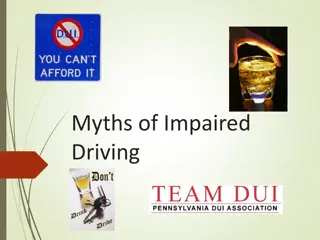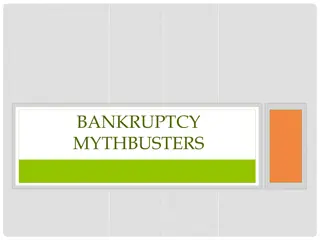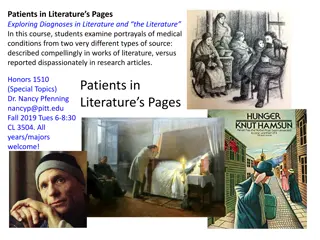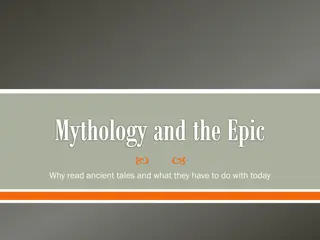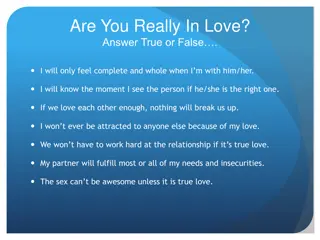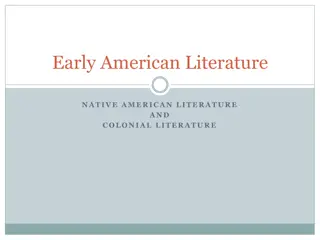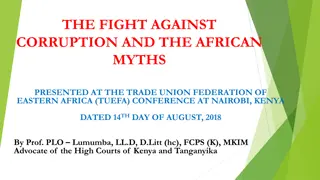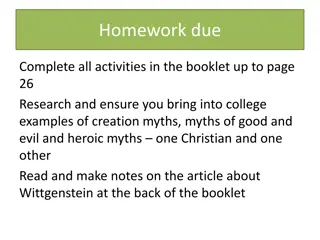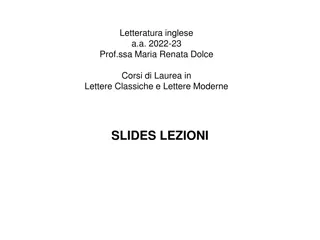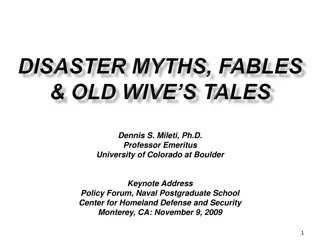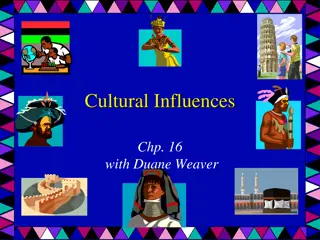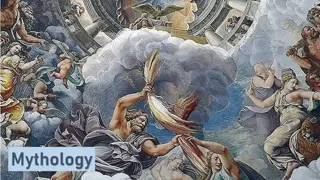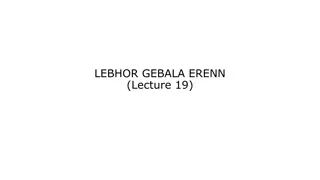Exploring Myths Across Time: The Origins of Literature
Delve into the world of myths and legends that have been passed down through generations, shaping cultures and belief systems. Discover how myths serve historical, psychological, and aetiological functions, offering insights into human behavior and the mysteries of the world. Explore the rich tapestry of Norse, Greek, and Arthurian myths, and their enduring impact on literature and society.
Download Presentation

Please find below an Image/Link to download the presentation.
The content on the website is provided AS IS for your information and personal use only. It may not be sold, licensed, or shared on other websites without obtaining consent from the author. Download presentation by click this link. If you encounter any issues during the download, it is possible that the publisher has removed the file from their server.
E N D
Presentation Transcript
The Origins of Literature Year 7 | The Origins of Literature Big Lecture Why do we tell stories?
Glossary (noun) A list of words or meanings, from the Greek word for tongue or language Glossary (adj) Of myth, which means traditional story, or widely believed but false idea Mythological (adj) to explain something by giving a cause or reason to it Aetiological (adj) related to the mental or emotional state of a person Psychological
Literary Timeline Norse Mythology and Viking Raids Romanticism The Renaissance Modern Period Today Greek Mythology Middle English Period Victorian Period The Enlightenment
The Origins of Literature What are myths?
Myths Myths are generally accepted to be stories or legends passed down to younger generations. They are usually fictional though can have a basis in true history. They can centre around heroes, gods, and magical beings, and explain ideas about the world around us. Myth comes from the Greek word mythos , meaning word or conversation (Stephen Fry uses this is as the title for his book). Myths can have a historical function, like King Arthur or have a religious function like Rama and Sita, and the story of Diwali, for example.
Myths can be used to explore stories for many different reasons, but here are the three most common types of myth. Myths| Aeteological myths Historical Myths Historical Myths They explain the reason why something is the way it is today. For example, a story that explains why we have seasons, or explains the natural world. These are told about a historical event; they help to keep the memory of that event alive, even if the story changes over time. Psychological myths These try to explain why we feel and act the way we do; gods control or punish behaviours, or choices, that humans make.
The First Order Myths are generally accepted to be stories or legends passed down to younger generations. They are usually fictional though can have a basis in true history. They can centre around heroes, gods, and magical beings, and explain ideas about the world around us. Myth comes from the Greek word mythos , meaning word or conversation (Stephen Fry uses this is as the title for his book). Myths can have a historical function, like King Arthur or have a religious function like Rama and Sita, and the story of Diwali, for example.
The First Order | As I read, consider the following questions: What happens in this aeteological myth? How does Stephen Fry describe the deities? Why do you think that Stephen Fry uses a colloquial tone to re-tell the myth? Deities: a god or goddess Primordial: something that has existed since the beginning of time Colloquial: everyday, conversational language Coalesce: to come together
The First Order After Chaos, five deities came into being and began giving shape to things, separating the muddle into specific places and times, and to set the stage for more creation. The deities were: Gaia (the mother Earth), Tartarus (the underworld), Erebus (the darkness that covers the underworld), Night (darkness that covers Earth), and Eros (Love).
Is the First Order: An explanation to explain the unexplained? A story passed on from generation to generation? A warning to us about how we react or behave?
The Origins of Literature Year 7 | The Origins of Literature Big Lecture Why do we tell stories?



